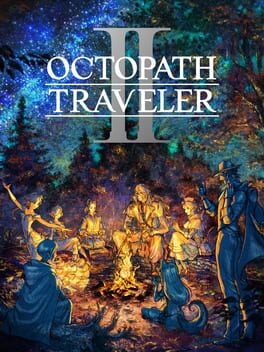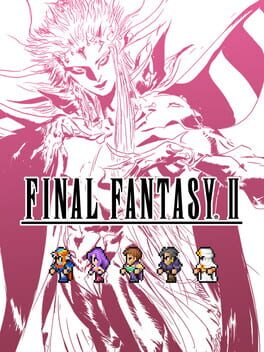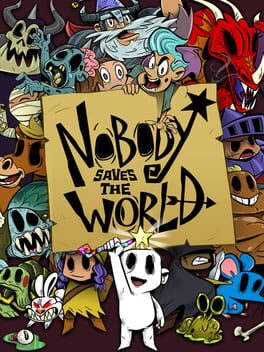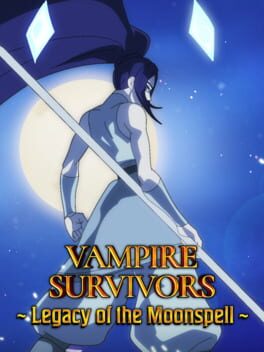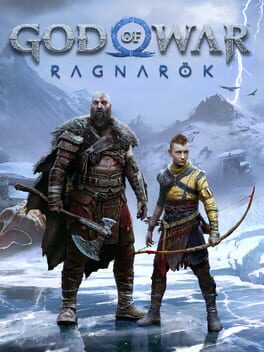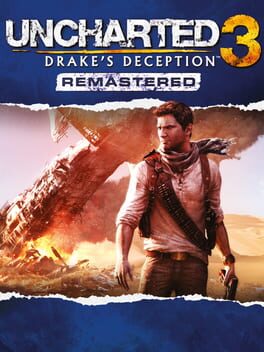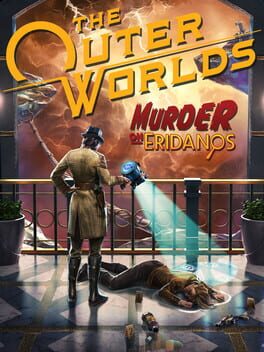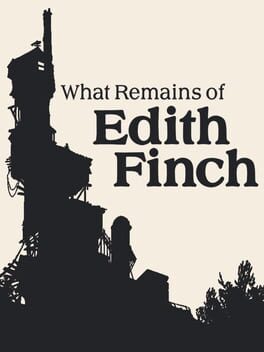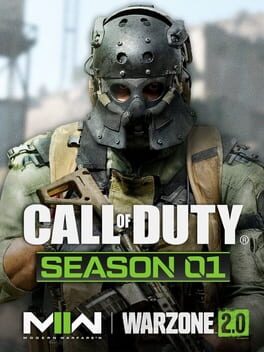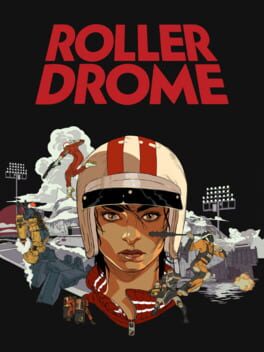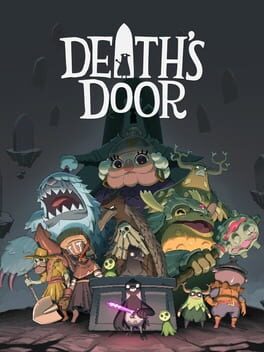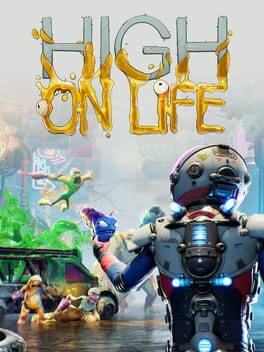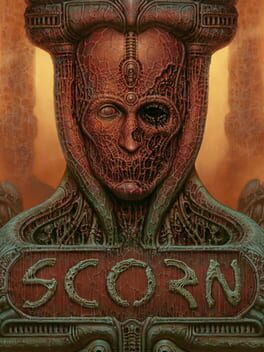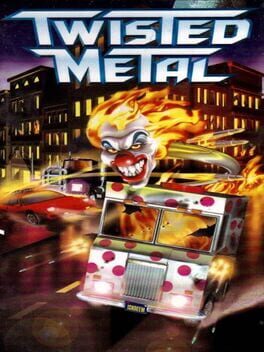ARW3
BACKER
2023
Octopath Traveler II is a wonderful RPG with stunning art direction, a phenomenal ensemble of characters, engaging turn-based combat, fun bosses, a flawless OST, and an overall interesting world to traverse. The 8 travelers stories all come together in a surprising, but satisfying concluding arc that made for a meaningful ending to an overall phenomenal experience. Their stories were varied, but were mostly of excellent quality. Castti, Osvald, and Throné were highlight characters for me personally. "Travel banter" between the characters was appropriately endearing, and by the end it is easy to become invested in the relationships of the cast members as well as their individual personalities. The world of Solistia is unapologetically gorgeous: HD-2D has made a triumphant return in Octopath II, and I can only hope to see it further employed in the future, hopefully with equally intriguing writing accompanying it. The pixel art on display here, including a gargantuan effort to create the game's day/night cycle, is amongst the best you will witness in any video game. The only thing in Octopath Traveler II more stunning than the art direction is the music: it is simply, sublime. Without a shadow of a doubt, this game's OST is one of the best I have ever heard in any video game. It ranges from uplifting to haunting, graceful to chaotic, and I would wager is nearly perfect. For fans of traditional, ensemble-driven turn-based RPGs, Octopath Traveler II is an indubitably easy recommendation.
2021
I hear from those better versed in the Final Fantasy franchise than I describe FFII as the "black sheep" of the franchise. Now having completed it, I understand where they are coming from, but overall enjoyed the experience. The leveling system, aka the elephant in the room, is indeed obtuse and poorly aged. However, it was in some ways a pioneering system that has bones we can see in modern RPGs' usage-based skill leveling systems. I do not think it would be too far-fetched to suggest that FFII laid down the groundwork for the skill leveling systems we see in the likes of The Elder Scrolls or in Starfield later this year.
While this first attempt at altering the tried and true means of leveling was middling in its reception, FFII distinguished itself from its predecessor in one other notable way. In my eyes, FFII represented a definitive step for the franchise in establishing self-identity. Here, unlike in FFI, there is a larger focus on establishing a character-driven story. It was a first-draft in telling a tale with gravity, featuring an ensemble of differing personalities, with a larger focus on world-building. This fundamental blueprint went on to shape future Final Fantasy stories.
Although surely not the best aging Final Fantasy game, I think FFII probably had more of an impact on future RPGs, including those in the same series, than it is often given credit for.
While this first attempt at altering the tried and true means of leveling was middling in its reception, FFII distinguished itself from its predecessor in one other notable way. In my eyes, FFII represented a definitive step for the franchise in establishing self-identity. Here, unlike in FFI, there is a larger focus on establishing a character-driven story. It was a first-draft in telling a tale with gravity, featuring an ensemble of differing personalities, with a larger focus on world-building. This fundamental blueprint went on to shape future Final Fantasy stories.
Although surely not the best aging Final Fantasy game, I think FFII probably had more of an impact on future RPGs, including those in the same series, than it is often given credit for.
2015
Performance woes, chalice dungeon grinds and rude mob encounter design aside, it is hard to critique such a masterfully crafted game. Bloodborne's deeply disturbing Victorian atmosphere represents a crowning achievement in world building. FromSoftware's RPG elements shine here and lend themselves to a highly player tailored experience that allows for meaningful builds and proper self-expression. Bloodborne's unique combat, forgoing any traditional "blocking" option, shines thanks to the thoughtful tools provided to players and FromSoftware's impeccable attention to mechanics. As is standard with FS games, the boss encounters are spectacular highlights throughout this experience. It too was engrossing to slowly piece together how each demented looking beast, creature, or disfigured person ties into the game's overall lore. Few games reach such heights in both combat and world design, making Bloodborne a quintessential experience for those up for its challenge.
2022
Just... really good gaming. I don't have much to add to the already existing GoW: Ragnarök discussion. It is a perfect marriage of sublime, insistently fun combat with meaningful narrative direction. The experience is brought home with stunning depictions of interesting characters, the realization of fantastical world spaces, astound attention to detail and high polish. Although hampered by lulls in the narrative pacing and an annoying travel system brought forward from God of War (2018), Ragnarök is nothing short of a masterpiece.
Platinum #11. Fantastic outing to conclude the PS3 era of Nathan Drake's adventures. Did not quite have the impact for me that Uncharted 2 had, but it was still a great globetrotting romp. Forced melee combat and button mashing prompts are both to the game's 'fun factor' detriment. They takes away focus from much improved 3rd person shooting mechanics. For its time of original release in Nov. 2011, Uncharted 3 once again continued the series' tradition of exceeding expectations in visual presentation and environmental diversity.
Aside from a slew of abysmal bugs at launch, MW II has provided a solid overall multiplayer experience. The early goings were especially frustrating as a result of constant crashes in parties of ≥3 people, as well as inconsistent in-game voice chat. As things have stabilized over the past month it has grown to be a fairly enjoyable, highly customizable multiplayer experience. Gunplay is as good as ever, but I find the current rendition of CoD unplayable in specific game modes where folks seem to prefer camping to actual gameplay (kudos to Infinity Ward for the introduction of the drill charge).
2022
2021
2022
Overall, High on Life is a pretty awesome game characterized largely by a constant stream of over-the-top humor that will get plenty of laughs out of most people. If you vibe with Justin Roiland's humor in Rick & Morty, you're probably gonna dig this game as well. It's a serviceable FPS platformer that is set in various, well-realized hub worlds. The bombastic art direction throughout is superb. The little details in High on Life are also fantastic - whether that be NPC dialogue, 4th wall-breaking jeers, or satirical depictions of our own society. It is readily apparent a lot of effort went into designing the bizarre setting for this title.
Performance is fine but I encountered a handful of frustrating bugs that were easily mitigated by checkpoint reloads. However, there is one prominent achievement bug that is much more obnoxious, given the setup for it requires a whole playthrough of the campaign. I am hopeful this will be patched, but I've seen no official word on the matter.
Squanch Games brought something quite unique to the table with High on Life, and I am quite keen to continue to see them make more titles outside of the VR space.
Performance is fine but I encountered a handful of frustrating bugs that were easily mitigated by checkpoint reloads. However, there is one prominent achievement bug that is much more obnoxious, given the setup for it requires a whole playthrough of the campaign. I am hopeful this will be patched, but I've seen no official word on the matter.
Squanch Games brought something quite unique to the table with High on Life, and I am quite keen to continue to see them make more titles outside of the VR space.
2022
Scorn is an unsettling outing into a dystopian alien society where the player is tasked with navigating various puzzles. Although no clear goal is spelled-out for the player, your task seemingly demands you escape the ancient structures from which you awaken.
Make no mistake, the chief appeal and greatest accomplishments of this title are found in its unique art direction. Scorn's grotesque presentation serves as an explicit ode to the works of H.R. Giger and surrealist artist Zdzisław Beksiński. The humanoid alien society in which Scorn takes place clearly draws from both their works. The parasitic plant depicted in Beksiński's 1978 "AA78" is personified by the eerie overgrowth the player must navigate as they physically descend Scorn's world. Further still, desolate landscapes and gothic cathedral-like edifices serve to evoke his many apocalyptic oil paintings. Society in Scorn appears revolved around the cyclical production and conclusion of life. Players will note the architecture they manipulate to progress will symbolically nod to the mechanical way by which society reproduced in the world of Scorn. Its biophysical and highly sexual undertones assuredly pull from H.R. Giger's various works. I imagine most players will at least have some familiarity with the original "Alien" films, and their influence on Scorn is readily observable. The macabre environmental design in Scorn serves it well in depicting its staggering, intriguingly vague story. Scorn has many touchstones: the cycle of life, maternalism, the burdens an individual bears for their society or the means by which a civilization might fight its own extinction.
While art direction is certainly the star here, justifying Scorn's existence in its own right, the rest of the experience garners more mixed feelings for me. The audio design was good and helped to promote a foreboding atmosphere. Of-course there are moments of gore with some particularly uncomfortable sounds and images for those who are even remotely squeamish. Puzzle design is overall pretty fine, with most individual puzzles demand some thought without being particularly obtuse. Homogenous, albeit engrossing, environmental design will be disorienting for most players when solving puzzles that demand them to cover some distance. This is made worse in Acts III-IV, where players must first engage with Scorn's combat in a meaningful way.
Initially, combat in Scorn is pretty dreadful. The limited types of enemies all encourage some "gamey" or "cheesy" actions of the player if they wish to avoid an exceedingly punishing death. In the earlier goings most enemies in Scorn are felled primarily by utilizing corners or structures as 'cover' while zig-zagging towards them to deploy an underpowered melee attack. Eventually, the player earns two more weapons that are more efficacious, but with severely limited ammunition. These weapons, as well as one endgame weapon, actually boast pretty rad designs (I'll also add that reloading is slow... but cool to look at). I actually found it somewhat rewarding and tense to manage the ammo for these weapons. You have an additional puzzle of making strategical decisions to skip combat encounters or engage, as one might do in a survival-horror game. However, this is ultimately a slight on the game, not a strength. The uncertainty governing combat management is made tedious by an unforgiving checkpoint system (and nonexistent save system). I only died twice in my Scorn play-through (once in Act III, once in Act V), but this was through excessively cautious, lucky play and not because of any particular 'skill.' I have heard of others losing an hour+ of progress, but in my experience the checkpoints I reached (although not manually loadable) generally only set me back 30s-5min prior to my deaths. I respect Scorn's unapologetic commitment to itself as a first-person, disturbing puzzle game in 3/5ths of its "Acts." However, I do think the game loses its identity a bit in acts III-IV, where the game becomes burdened with poorly implemented combat.
It is worth noting that Scorn was initially reported to have quite a few bugs, however I experienced none during my play-through on the Xbox Series X (~6 hours of gametime). Sometimes enemies clipped through the environment, but I did not encounter any progress-halting bugs nor other glitches. I am unsure if the day one console patch (~3gb) resolved many of the issues media outlets experienced, or if I just got lucky. Although I did not experience any bugs or crashes, this does not undermine the experiences others had. The topic of these bugs/glitches is just one I cannot comment on further, based off my personal time with the game.
Overall, I am inclined to recommend Scorn to those who understand just what this game is and accept the caveat that the compelling journey it takes you on is not one that will intermix much in the way of traditional action-focused gameplay. It could do with a few QoL adjustments, particularly in melee damage and a save feature. Scorn is not a survival-horror game, nor is it a pure walking simulator or no-combat puzzle game. Its agglomerative nature is probably to its detriment, but within its flaws exists a wholly unique experience. Scorn's artists/designers made good use of Unreal Engine 5, it would seem, as the visual impact this game has is profound. It is easy to recommend this game on those grounds alone. This is Ebb Software's debut title, and I am excited to see what they will produce in the future! Not many developers can produce such a fascinating, unique and well-realized world in their first outing. This team operates out of Serbia, and represent part of the explosion of GameDev talent we are seeing in Eastern Europe at the time of my writing... Teams like Ebb Software, SadCat, 4A Games (who have relocated to Malta, but originated in Kiev), GSC Game World, and Mundfish are all worth keeping an eye on in the years to come.
It is hard for me to put a number score on Scorn, and truth-be-told it personally lands for me somewhere between the ★★★½ " Good" and ★★★★ "Great" marks.
Make no mistake, the chief appeal and greatest accomplishments of this title are found in its unique art direction. Scorn's grotesque presentation serves as an explicit ode to the works of H.R. Giger and surrealist artist Zdzisław Beksiński. The humanoid alien society in which Scorn takes place clearly draws from both their works. The parasitic plant depicted in Beksiński's 1978 "AA78" is personified by the eerie overgrowth the player must navigate as they physically descend Scorn's world. Further still, desolate landscapes and gothic cathedral-like edifices serve to evoke his many apocalyptic oil paintings. Society in Scorn appears revolved around the cyclical production and conclusion of life. Players will note the architecture they manipulate to progress will symbolically nod to the mechanical way by which society reproduced in the world of Scorn. Its biophysical and highly sexual undertones assuredly pull from H.R. Giger's various works. I imagine most players will at least have some familiarity with the original "Alien" films, and their influence on Scorn is readily observable. The macabre environmental design in Scorn serves it well in depicting its staggering, intriguingly vague story. Scorn has many touchstones: the cycle of life, maternalism, the burdens an individual bears for their society or the means by which a civilization might fight its own extinction.
While art direction is certainly the star here, justifying Scorn's existence in its own right, the rest of the experience garners more mixed feelings for me. The audio design was good and helped to promote a foreboding atmosphere. Of-course there are moments of gore with some particularly uncomfortable sounds and images for those who are even remotely squeamish. Puzzle design is overall pretty fine, with most individual puzzles demand some thought without being particularly obtuse. Homogenous, albeit engrossing, environmental design will be disorienting for most players when solving puzzles that demand them to cover some distance. This is made worse in Acts III-IV, where players must first engage with Scorn's combat in a meaningful way.
Initially, combat in Scorn is pretty dreadful. The limited types of enemies all encourage some "gamey" or "cheesy" actions of the player if they wish to avoid an exceedingly punishing death. In the earlier goings most enemies in Scorn are felled primarily by utilizing corners or structures as 'cover' while zig-zagging towards them to deploy an underpowered melee attack. Eventually, the player earns two more weapons that are more efficacious, but with severely limited ammunition. These weapons, as well as one endgame weapon, actually boast pretty rad designs (I'll also add that reloading is slow... but cool to look at). I actually found it somewhat rewarding and tense to manage the ammo for these weapons. You have an additional puzzle of making strategical decisions to skip combat encounters or engage, as one might do in a survival-horror game. However, this is ultimately a slight on the game, not a strength. The uncertainty governing combat management is made tedious by an unforgiving checkpoint system (and nonexistent save system). I only died twice in my Scorn play-through (once in Act III, once in Act V), but this was through excessively cautious, lucky play and not because of any particular 'skill.' I have heard of others losing an hour+ of progress, but in my experience the checkpoints I reached (although not manually loadable) generally only set me back 30s-5min prior to my deaths. I respect Scorn's unapologetic commitment to itself as a first-person, disturbing puzzle game in 3/5ths of its "Acts." However, I do think the game loses its identity a bit in acts III-IV, where the game becomes burdened with poorly implemented combat.
It is worth noting that Scorn was initially reported to have quite a few bugs, however I experienced none during my play-through on the Xbox Series X (~6 hours of gametime). Sometimes enemies clipped through the environment, but I did not encounter any progress-halting bugs nor other glitches. I am unsure if the day one console patch (~3gb) resolved many of the issues media outlets experienced, or if I just got lucky. Although I did not experience any bugs or crashes, this does not undermine the experiences others had. The topic of these bugs/glitches is just one I cannot comment on further, based off my personal time with the game.
Overall, I am inclined to recommend Scorn to those who understand just what this game is and accept the caveat that the compelling journey it takes you on is not one that will intermix much in the way of traditional action-focused gameplay. It could do with a few QoL adjustments, particularly in melee damage and a save feature. Scorn is not a survival-horror game, nor is it a pure walking simulator or no-combat puzzle game. Its agglomerative nature is probably to its detriment, but within its flaws exists a wholly unique experience. Scorn's artists/designers made good use of Unreal Engine 5, it would seem, as the visual impact this game has is profound. It is easy to recommend this game on those grounds alone. This is Ebb Software's debut title, and I am excited to see what they will produce in the future! Not many developers can produce such a fascinating, unique and well-realized world in their first outing. This team operates out of Serbia, and represent part of the explosion of GameDev talent we are seeing in Eastern Europe at the time of my writing... Teams like Ebb Software, SadCat, 4A Games (who have relocated to Malta, but originated in Kiev), GSC Game World, and Mundfish are all worth keeping an eye on in the years to come.
It is hard for me to put a number score on Scorn, and truth-be-told it personally lands for me somewhere between the ★★★½ " Good" and ★★★★ "Great" marks.
2023
Proper, silly good time. The ridiculous premise aged well enough, but the controls? Less so. Cars drive a bit janky, like the sensitivity has been cranked up to 11. Higher difficulties feel a bit oppressive, but are manageable once one develops some familiarity with the controls and strategies needed to consistently progress. All and all, a very cool title to see added to the PS Classics Collection.
